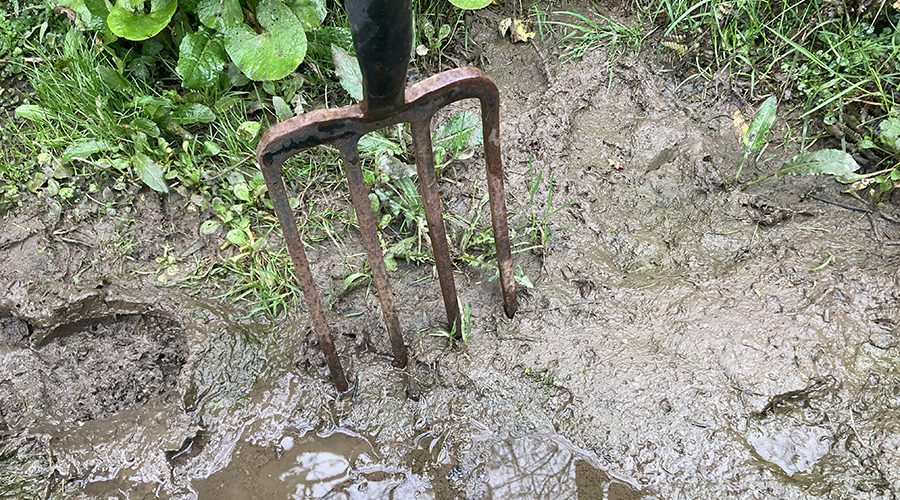If your veg garden is somewhat soggy following heavy rains over recent weeks, you may be worrying about planting, especially if you have onion sets or seed potatoes to get in the ground.
If the waterlogging has only been for a week or two, then the soil should bounce back on its own as it dries out, and you can just crack on with planting season as normal. In this instance, we’d recommend planting your seed potatoes as soon as the soil feels workable. Onion sets would ideally be planted before the end of March, so if you think the soil is going to be too wet for them you may want to consider filling a planter or perhaps an old wheelbarrow with some compost and planting them in that (or knock up a little raised bed for them).
If it has been longer than that and the flooding is severe, then the soil may need a little assistance from you. Here are a few ideas to help the soil recover from winter waterlogging in time for spring planting:
- Avoid trampling on the soil. Instead, put down planks of wood to use as walkways to avoid compacting the soil while it is still very wet.
- Dig drainage ditches if you can. If you can’t, try driving a garden fork into the soil so that the prongs make holes. It’s not foolproof, but it may help the water to drain away a little faster.
- Once the soil has dried out enough that it is fully workable, you may choose to dig in plenty of multipurpose compost ahead of planting. This will help to improve soil consistency and get a bit of oxygen back in the soil to give it a chance to recover well.
- Wait until the soil has recovered before planting out – much better to wait an extra week if needs be. If your plants arrive while the soil is still recovering, you can always use a grow bag or a bag of compost to loosely plug the plants in, and then plant them out properly in a week or two. We have more on this in this video
- When it comes to planting, use a trowel to dig holes for your plug plants and add a handful of compost to each hole. You may find that the plug plants put their roots down quite quickly and hence find water very easily, so be careful not to overwater them. Putting their roots down deep will prepare them really well for the summer so it’s actually quite good to encourage them to do this by not overwatering.
- After you do plant out this spring, you’d be wise to mulch well so that the soil can continue to recover whilst being protected from harsh sun/cold winds/chilly nights by the mulch.

